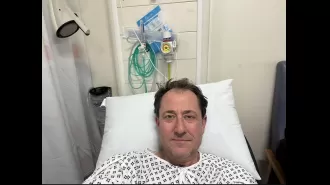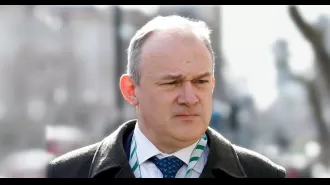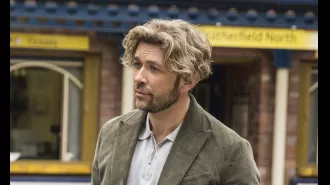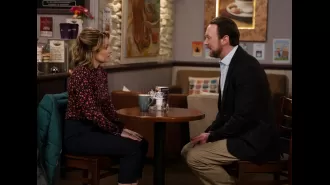South Koreans rejoice as leader is removed for declaring martial law.
Yoon's presidential powers were temporarily halted and Prime Minister Han Duck-soo, the second-highest official in the country, assumed presidential duties on Saturday.
December 15th 2024.
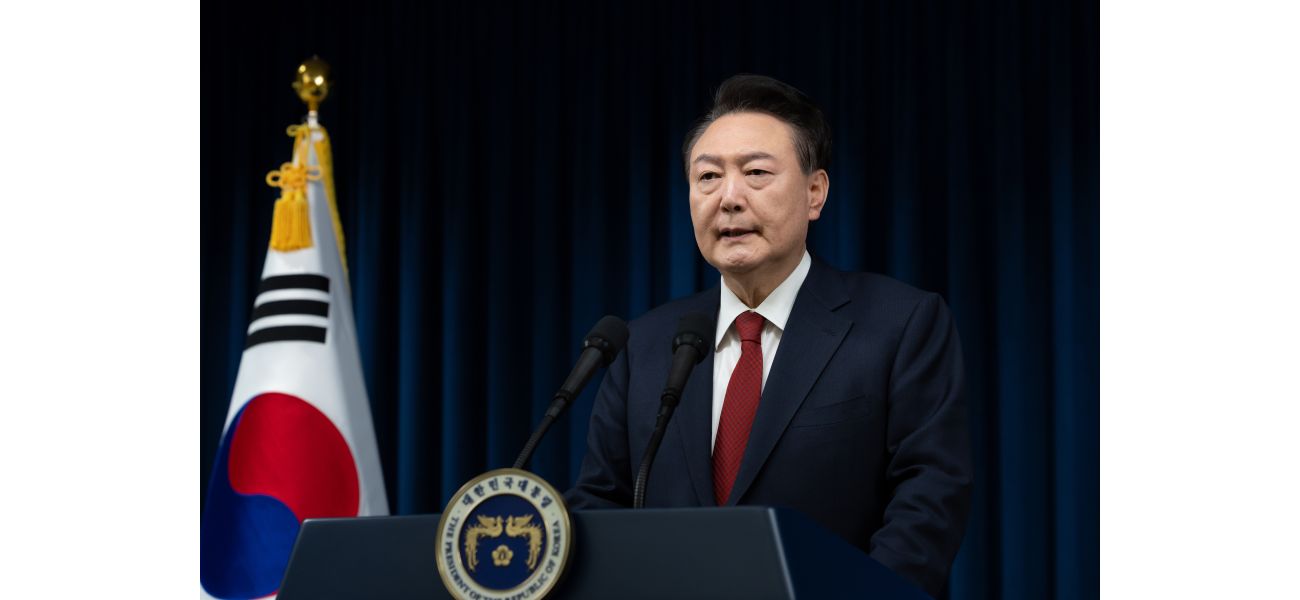
On a Saturday afternoon, the South Korean parliament made the historic decision to impeach President Yoon Suk Yeol. This was a result of the controversial martial law decree that he had imposed earlier in the week. While this move ended a period of political paralysis, it also sparked a heated debate over President Yoon's fate. Crowds of jubilant citizens gathered to celebrate this bold moment in their country's resilient democracy. The motion to impeach was passed with a vote of 204-85 in favor.
As a consequence of the impeachment, President Yoon's powers and duties were immediately suspended. The role of leading the country fell to Prime Minister Han Duck-soo, the second-highest official in South Korea. He officially took over the presidential powers later that same Saturday. However, the Constitutional Court now has up to 180 days to decide whether to dismiss Yoon from his position or to restore his powers. If he is removed from office, a national election must be held within 60 days to choose his successor.
This was actually the second time the National Assembly had voted on Yoon's impeachment. The first time, ruling party lawmakers had boycotted the vote. However, in the time that had passed, public protests had intensified and Yoon's approval rating had plummeted. As a result, some members of the ruling party announced that they would now vote for Yoon's impeachment. National Assembly Speaker Woo Won Shik stated that this decision was a result of "the people's ardent desire for democracy, courage, and dedication."
The news of Yoon's impeachment was met with joy and celebration from the hundreds of thousands of people gathered near the parliament. They waved banners and colorful K-pop glow sticks, while a lead activist declared on stage, "We have preserved the constitutional order!" One protester, Kim Su-bong, expressed their happiness and emotions, saying, "The impeachment has been done in line with the people's demand and I hope a decision to dismiss Yoon Suk Yeol will come as soon as possible. I view it as a victory of the people."
However, in a central plaza in Seoul, another large crowd had gathered in support of Yoon. They were initially subdued upon hearing the news of his impeachment, but their spirits were lifted when Yoon issued a statement vowing to "never give up." He called for officials to maintain stability in government functions during this "temporary" pause of his presidency. Yoon also expressed his gratitude for the criticisms, encouragement, and support he had received, promising to continue doing his utmost for the country until the very end.
Yoon's decision to impose martial law on December 3 had caused significant turmoil and tension in South Korea. It was the first time in over four decades that such a decree had been declared. Although it only lasted for six hours, it had major consequences, including halting diplomatic activities and causing financial markets to fluctuate. Yoon was ultimately forced to lift the decree after parliament unanimously voted against it.
As the acting leader, Prime Minister Han Duck-soo immediately took action to bolster the country's security posture. He ordered the military to remain alert to prevent any potential provocations from North Korea. Han also instructed the foreign minister to inform other countries that South Korea's major external policies would remain unchanged. He also emphasized the need to minimize any negative impacts on the economy caused by the political turmoil.
In a televised statement, Han earnestly asked all public servants to carry out their duties without neglect to ensure the government's stability. He also had a phone call with US President Joe Biden, where they discussed the political situation in South Korea and regional security challenges. They both reaffirmed their mutual commitment to maintaining and strengthening their alliance.
In South Korea, the president holds the most executive power, but in the event of their incapacity, the prime minister takes over as the acting leader. Han Duck-soo, a seasoned official who previously held top government positions, including prime minister, was well-equipped to handle this responsibility. The U.S. Ambassador to South Korea, Philip S. Goldberg, expressed their support for the country's democratic and constitutional process.
Japanese Prime Minister Shigeru Ishiba also closely monitored the developments in South Korea. However, he stated that the importance of Japan-South Korea relations would not be affected. It was evident that the international community was closely watching the situation unfold in South Korea.
After Yoon declared martial law, he sent hundreds of troops and police officers to the parliament to impede the vote on his decree. However, they eventually withdrew after the parliament rejected Yoon's orders. Luckily, no major violence occurred. Opposition parties accused Yoon of rebellion, citing a law that categorizes it as an act against the state authorities to undermine the constitution. They also argued that the president did not have the right to suspend parliament's operations, even under martial law.
The impeachment motion alleged that Yoon "committed rebellion that hurt peace in the Republic of Korea by staging a series of riots." It also stated that Yoon's mobilization of military and police forces posed a threat to the National Assembly and the public. Furthermore, it claimed that his martial law decree aimed to disturb the constitution.
Despite the charges against him, Yoon remained defiant. In a passionate speech on Thursday, he rejected the allegations of rebellion, stating that his introduction of martial law was an act of governance. He also used this opportunity to criticize the main liberal opposition party, calling them "a monster" and "anti-state forces." He accused them of using their legislative power to impeach top officials and undermine the government's budget bill for the next year.
The leader of the Democratic Party, Lee Jae-myung, called Yoon's speech a "mad declaration of war" against the people. Many observers believed that Yoon's speech was a strategic move to prepare for his defense at the Constitutional Court. However, public opinion polls showed that over 70% of South Koreans supported his impeachment. In fact, a survey released on Friday showed Yoon's approval rating at an all-time low of 11% since he took office in 2022.
Some of Yoon's claims did not align with the testimony of some military commanders who were deployed to the National Assembly. Commander Kwak Jong-keun revealed that Yoon had ordered his troops to "quickly destroy the door and drag out the lawmakers who are inside." Kwak did not carry out this order. Although Yoon has the privilege of immunity from criminal prosecution as the president, this does not extend to allegations of rebellion or treason. However, it is unlikely that authorities will forcefully detain him due to potential clashes with his presidential security service.
In recent years, Yoon is the third South Korean president to be impeached while in office. In 2016, the first female president, Park Geun-hye, was impeached and later dismissed due to a corruption scandal. In 2004, President Roh Moo-hyun was impeached, but the court overturned this decision and restored his powers. Yoon has now been banned from leaving South Korea, and some high-level officials, including the defense minister and police chief, have been arrested over the enforcement of martial law. The situation remains tense, but the South Korean people are hopeful that the nation will overcome this challenge and emerge stronger than ever.
As a consequence of the impeachment, President Yoon's powers and duties were immediately suspended. The role of leading the country fell to Prime Minister Han Duck-soo, the second-highest official in South Korea. He officially took over the presidential powers later that same Saturday. However, the Constitutional Court now has up to 180 days to decide whether to dismiss Yoon from his position or to restore his powers. If he is removed from office, a national election must be held within 60 days to choose his successor.
This was actually the second time the National Assembly had voted on Yoon's impeachment. The first time, ruling party lawmakers had boycotted the vote. However, in the time that had passed, public protests had intensified and Yoon's approval rating had plummeted. As a result, some members of the ruling party announced that they would now vote for Yoon's impeachment. National Assembly Speaker Woo Won Shik stated that this decision was a result of "the people's ardent desire for democracy, courage, and dedication."
The news of Yoon's impeachment was met with joy and celebration from the hundreds of thousands of people gathered near the parliament. They waved banners and colorful K-pop glow sticks, while a lead activist declared on stage, "We have preserved the constitutional order!" One protester, Kim Su-bong, expressed their happiness and emotions, saying, "The impeachment has been done in line with the people's demand and I hope a decision to dismiss Yoon Suk Yeol will come as soon as possible. I view it as a victory of the people."
However, in a central plaza in Seoul, another large crowd had gathered in support of Yoon. They were initially subdued upon hearing the news of his impeachment, but their spirits were lifted when Yoon issued a statement vowing to "never give up." He called for officials to maintain stability in government functions during this "temporary" pause of his presidency. Yoon also expressed his gratitude for the criticisms, encouragement, and support he had received, promising to continue doing his utmost for the country until the very end.
Yoon's decision to impose martial law on December 3 had caused significant turmoil and tension in South Korea. It was the first time in over four decades that such a decree had been declared. Although it only lasted for six hours, it had major consequences, including halting diplomatic activities and causing financial markets to fluctuate. Yoon was ultimately forced to lift the decree after parliament unanimously voted against it.
As the acting leader, Prime Minister Han Duck-soo immediately took action to bolster the country's security posture. He ordered the military to remain alert to prevent any potential provocations from North Korea. Han also instructed the foreign minister to inform other countries that South Korea's major external policies would remain unchanged. He also emphasized the need to minimize any negative impacts on the economy caused by the political turmoil.
In a televised statement, Han earnestly asked all public servants to carry out their duties without neglect to ensure the government's stability. He also had a phone call with US President Joe Biden, where they discussed the political situation in South Korea and regional security challenges. They both reaffirmed their mutual commitment to maintaining and strengthening their alliance.
In South Korea, the president holds the most executive power, but in the event of their incapacity, the prime minister takes over as the acting leader. Han Duck-soo, a seasoned official who previously held top government positions, including prime minister, was well-equipped to handle this responsibility. The U.S. Ambassador to South Korea, Philip S. Goldberg, expressed their support for the country's democratic and constitutional process.
Japanese Prime Minister Shigeru Ishiba also closely monitored the developments in South Korea. However, he stated that the importance of Japan-South Korea relations would not be affected. It was evident that the international community was closely watching the situation unfold in South Korea.
After Yoon declared martial law, he sent hundreds of troops and police officers to the parliament to impede the vote on his decree. However, they eventually withdrew after the parliament rejected Yoon's orders. Luckily, no major violence occurred. Opposition parties accused Yoon of rebellion, citing a law that categorizes it as an act against the state authorities to undermine the constitution. They also argued that the president did not have the right to suspend parliament's operations, even under martial law.
The impeachment motion alleged that Yoon "committed rebellion that hurt peace in the Republic of Korea by staging a series of riots." It also stated that Yoon's mobilization of military and police forces posed a threat to the National Assembly and the public. Furthermore, it claimed that his martial law decree aimed to disturb the constitution.
Despite the charges against him, Yoon remained defiant. In a passionate speech on Thursday, he rejected the allegations of rebellion, stating that his introduction of martial law was an act of governance. He also used this opportunity to criticize the main liberal opposition party, calling them "a monster" and "anti-state forces." He accused them of using their legislative power to impeach top officials and undermine the government's budget bill for the next year.
The leader of the Democratic Party, Lee Jae-myung, called Yoon's speech a "mad declaration of war" against the people. Many observers believed that Yoon's speech was a strategic move to prepare for his defense at the Constitutional Court. However, public opinion polls showed that over 70% of South Koreans supported his impeachment. In fact, a survey released on Friday showed Yoon's approval rating at an all-time low of 11% since he took office in 2022.
Some of Yoon's claims did not align with the testimony of some military commanders who were deployed to the National Assembly. Commander Kwak Jong-keun revealed that Yoon had ordered his troops to "quickly destroy the door and drag out the lawmakers who are inside." Kwak did not carry out this order. Although Yoon has the privilege of immunity from criminal prosecution as the president, this does not extend to allegations of rebellion or treason. However, it is unlikely that authorities will forcefully detain him due to potential clashes with his presidential security service.
In recent years, Yoon is the third South Korean president to be impeached while in office. In 2016, the first female president, Park Geun-hye, was impeached and later dismissed due to a corruption scandal. In 2004, President Roh Moo-hyun was impeached, but the court overturned this decision and restored his powers. Yoon has now been banned from leaving South Korea, and some high-level officials, including the defense minister and police chief, have been arrested over the enforcement of martial law. The situation remains tense, but the South Korean people are hopeful that the nation will overcome this challenge and emerge stronger than ever.
[This article has been trending online recently and has been generated with AI. Your feed is customized.]
[Generative AI is experimental.]
0
0
Submit Comment

